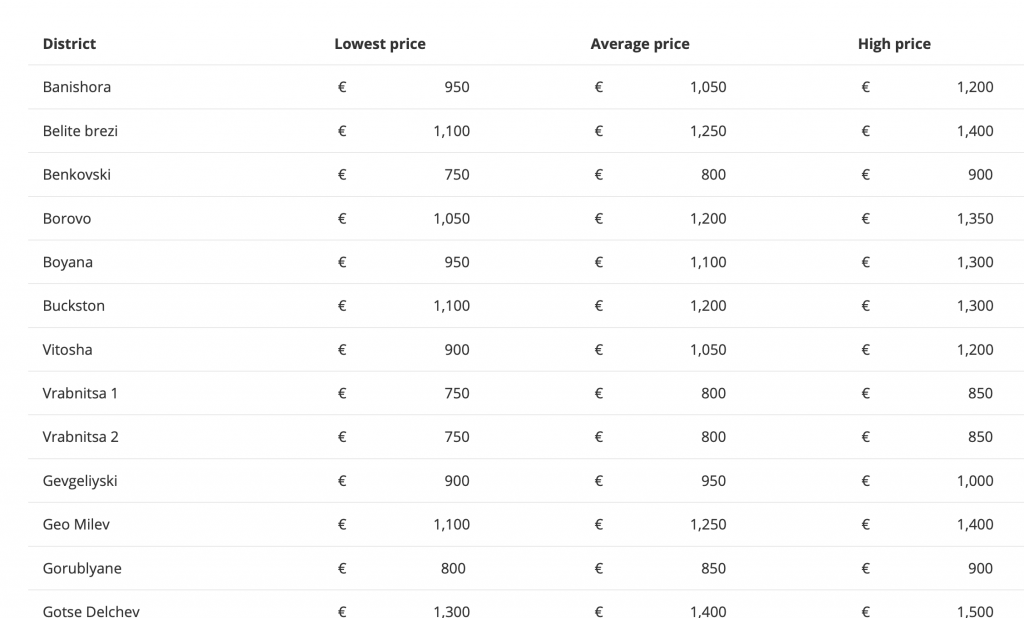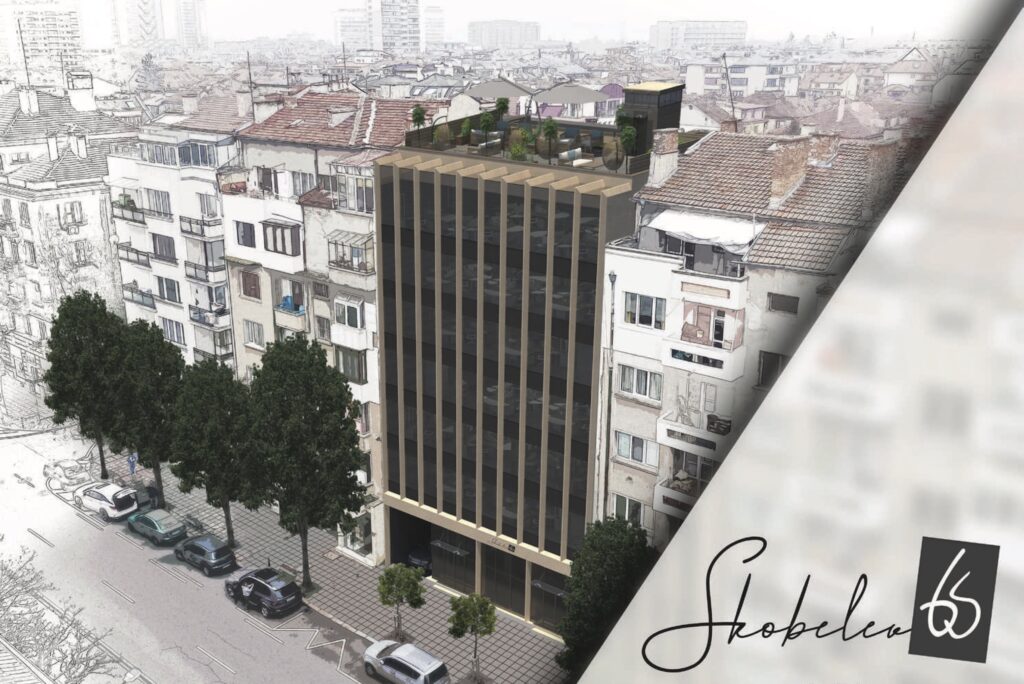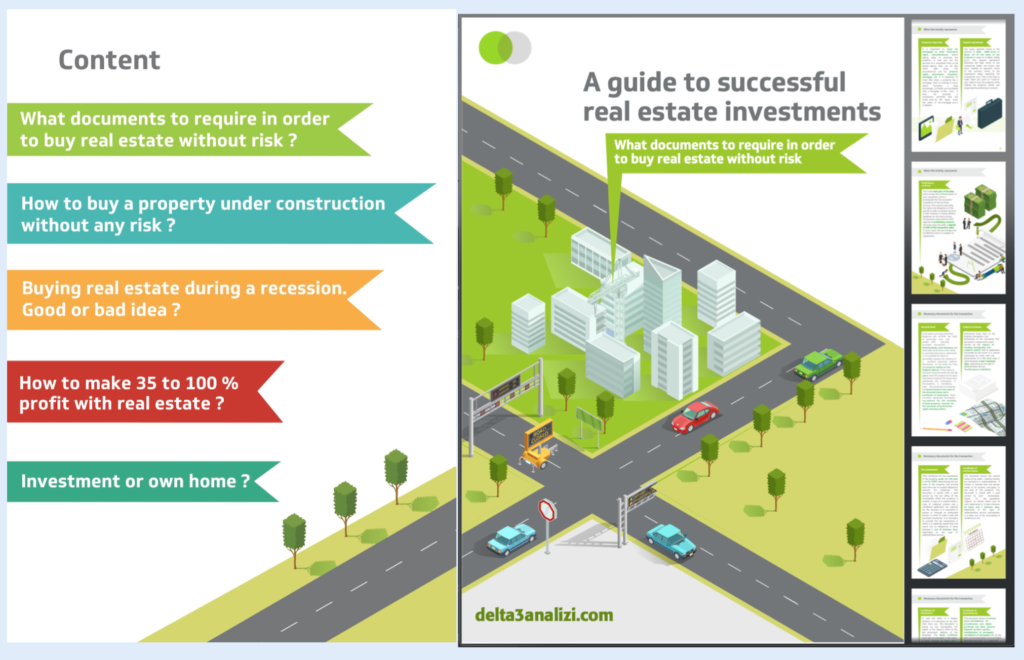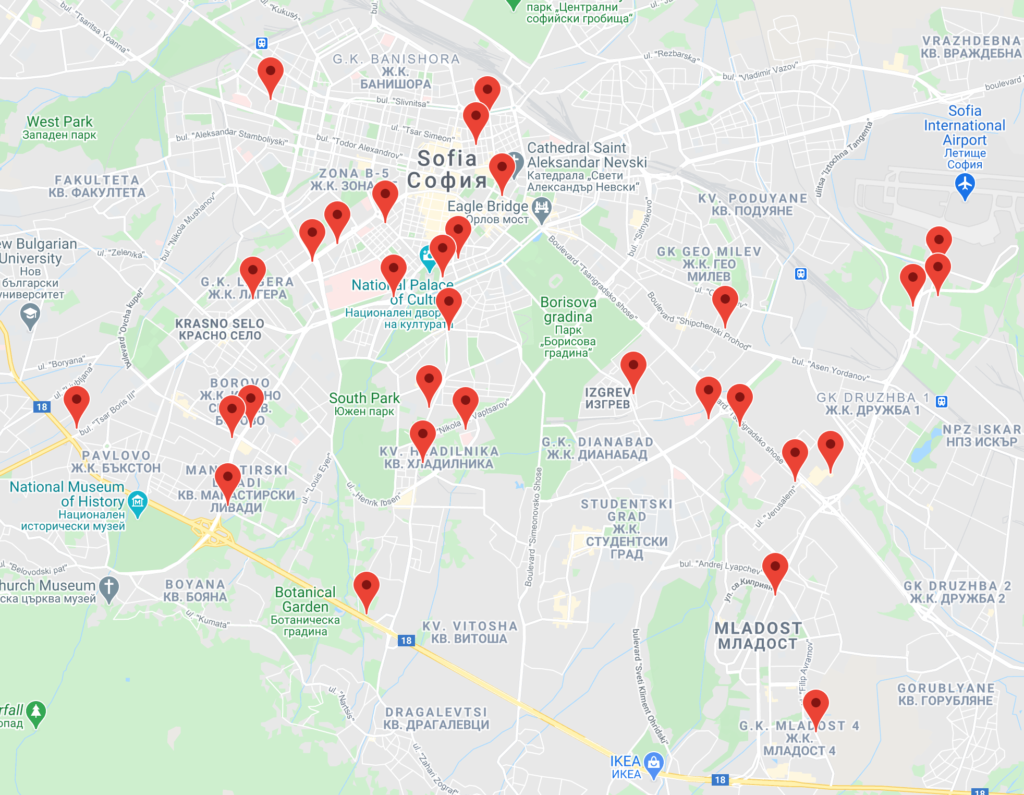The year of 2020 has brought many concerns to the real estate market all around the world. Before the coronavirus pandemic occurred, the predictions for the development of real estate in 2020 were promising. However, the ongoing pandemic created an unprecedented uncertainty in almost every economy around the world. Therefore, it seems somehow natural for the following question to appear: What is expected to happen with real estate markets in the near future?
Despite the overall pessimistic forecast for the economic consequences of the coronavirus pandemic, from the perspective of the real estate market, this crisis is different from the previous one in years 2008-2010. The coronavirus crisis is expected to have a much less harmful impact on real estate market compared to the 2008-2010 crisis mainly because of the government help in one or another form.
It is often discussed that prices in Sofia are too high and for the same amount of money one can buy an apartment or a house in Germany, England, Italy, etc. But is that reality or a result of incomplete or inaccurate information? In this article we will show you how things really are and we will compare the prices of residential properties across Europe.
Europe was one of the worst economically affected regions by the coronavirus pandemic. As a result, housing prices in Europe are expected to fall in the coming months and years. Nevertheless, it is important to mention that the accommodative monetary policy of the ECB will keep interest rates at low levels, which will be beneficial for the real estate market.
When it comes to property prices, many would argue that apartments in Sofia are way too expensive and in some cases could be even more expensive than a house. Yes, in some cases that might be true but it all depends on the location, environment, property type and multiple other factors. In order to talk about property prices, we should look at things objectively – i.e. compare a capital city with a capital city, a big city with a big city, a village with a village.
Neutrally speaking, Sofia is a capital city hence it should be compared with another capital city in order to make a parallel between property prices. Yes, it has its considerable disadvantages, but this is the largest and most developed city in Bulgaria and in some aspects is not inferior to other European capitals. Therefore, it is by no means correct to compare the property prices in a European capital city with those in some village, be it in the most developed European country, and to and to point out incorrect arguments such as, „I can buy a house in Germany for € 80,000, and a two-bedroom apartment in Sofia is € 100,000.“ There are places in Bulgaria where you can buy a house even for € 5,000.
But what would the price be in Berlin, Milano, Barcelona and other big cities and capitals?
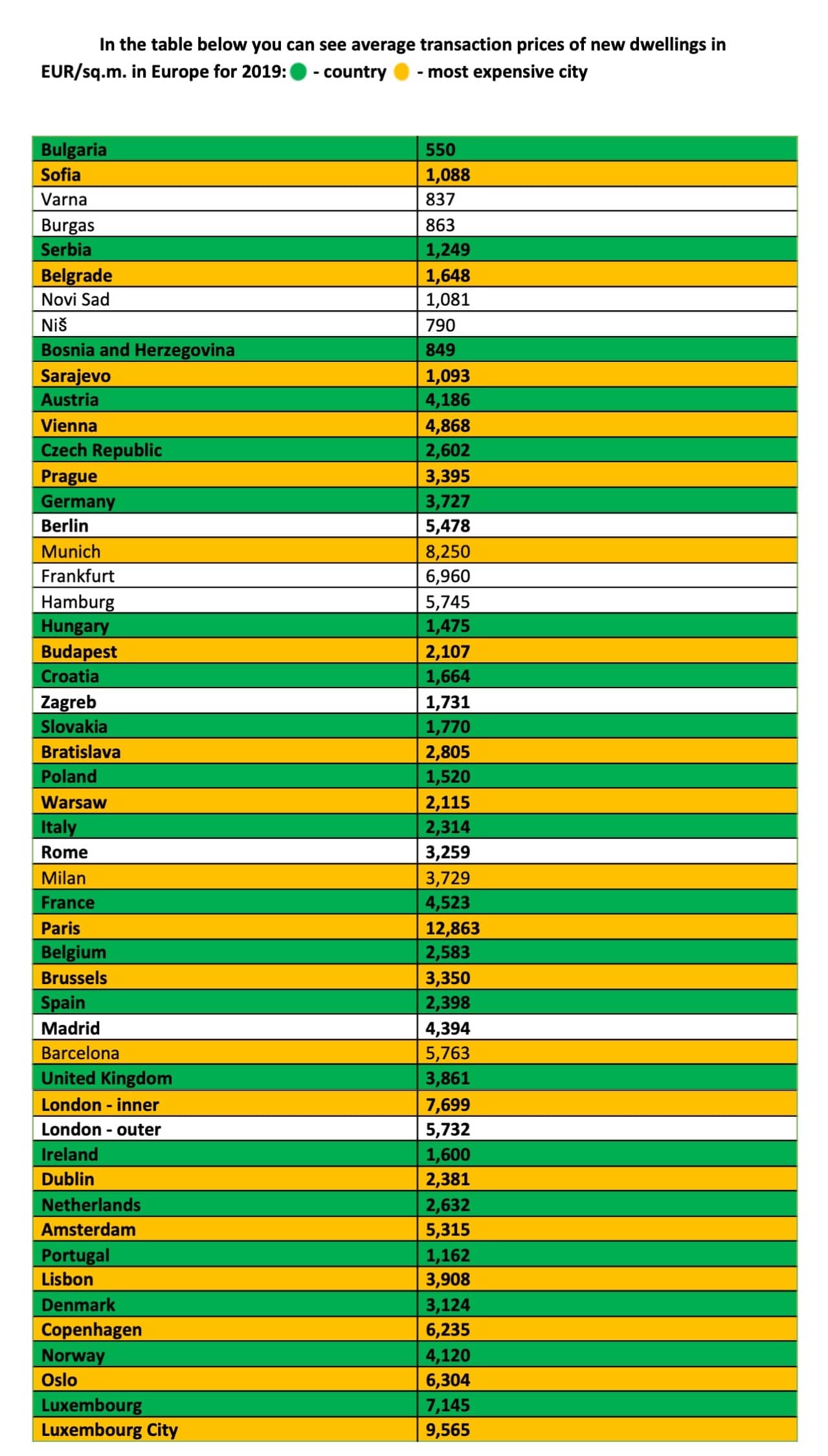
Compared to other European capitals, Sofia had the lowest prices for new dwellings in Europe, even after Belgrade, by about 60%. However, one would say that Serbs have higher income than Bulgarians. Let’s compare them then:
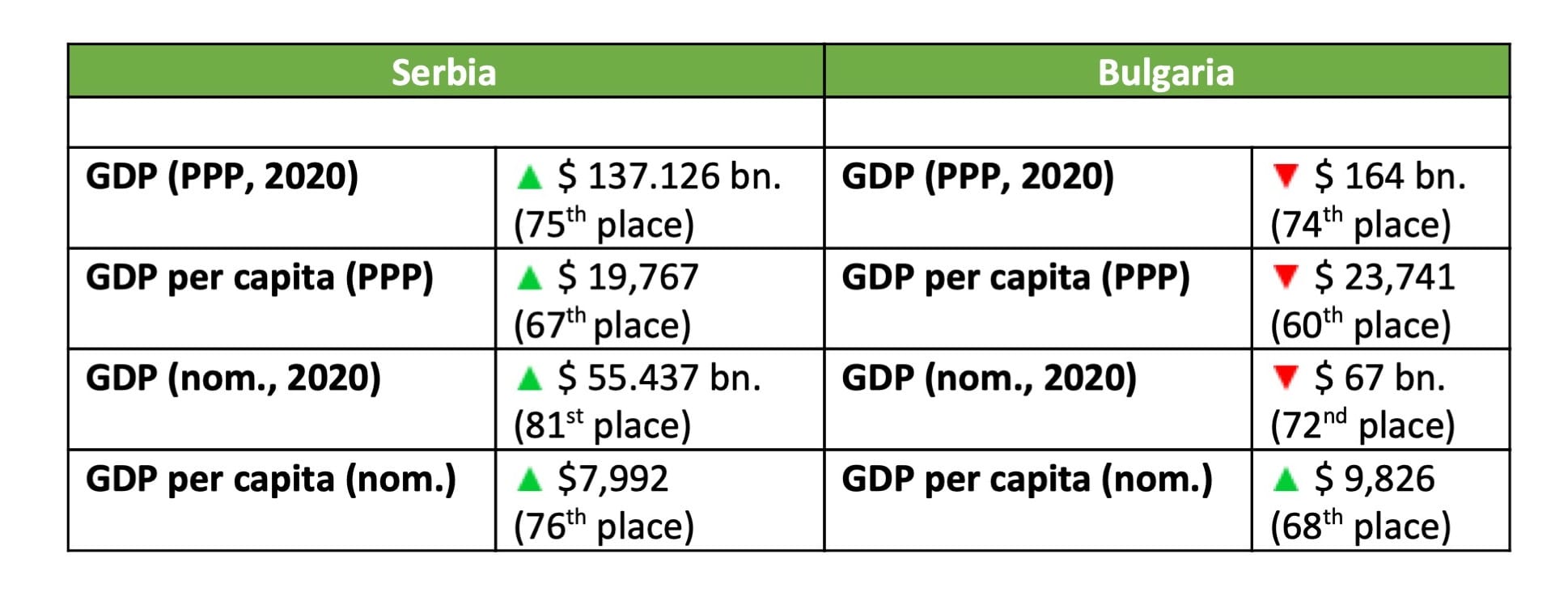
If we abstract ourselves from Sofia and Belgrade, it turns out that Bulgaria is one of the countries where it is easiest to acquire own housing of about 70 sq.m. According to the average salary for Serbia and Bulgaria, to own a home of 70 sq.m. in Bulgaria is almost 2 times easier than in Serbia. It is slightly easier in Portugal, Belgium and Norway, and it is most difficult in the Czech Republic, Austria and Slovakia.
Another major factor that is important to mention is mortgage interest rates. In 2019, the average mortgage interest rate in Bulgaria was 2.9%, which puts us shortly after the European average and ranks us between Norway with 2.8% and Croatia with 3%. The best conditions are in Portugal – 1.1%, and the worst are in Hungary – 4.6%.
According to statistics, Sofia reports the lowest rental prices in Europe. With a price of 4,1 €/sq.m., we line up next to Sarajevo. The ranking for the highest rents is led by Luxembourg with 30 €/sq.m., followed by Paris with 28.3 €/sq.m. and Oslo with 25.8 €/sq.m.
In order to access the affordability of own housing, it is necessary to calculate the number of average gross annual salaries needed to purchase a standardized new home. In this aspect, Bulgaria was one of the countries with relatively affordable own housing (5 times the average gross annual salary).
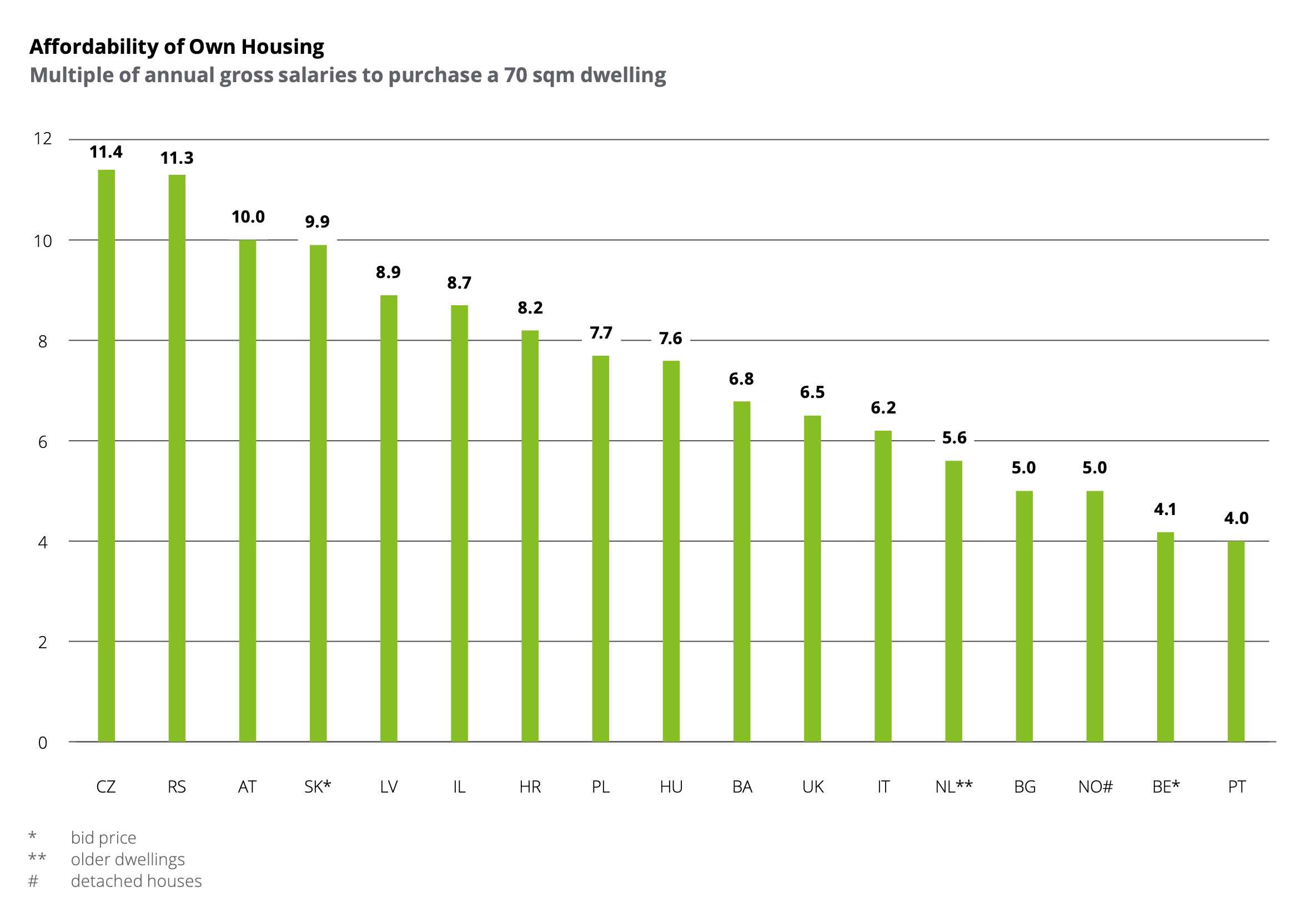 What is more, Bulgaria reports a relatively large housing stock per 1,000 citizens (566.2 dwellings per 1,000 citizens), which indicates that the development intensity in terms of both initiated and completed dwellings is at a good level.
What is more, Bulgaria reports a relatively large housing stock per 1,000 citizens (566.2 dwellings per 1,000 citizens), which indicates that the development intensity in terms of both initiated and completed dwellings is at a good level.
If currently the prices in Sofia seem too high to you, then there is no data indicating that they will fall in the long run. Over the next few years, interest rates on loans are expected to stay the same or fall, which will at least maintain the slight upward trend in prices.
In case you want to buy a property in Sofia and you have decided that you should wait for a year or more for prices to fall, we will disappoint you because in the long run prices are not expected to fall. There is always the possibility of momentary declines in certain situations, but realistically, Sofia is developing not only infrastructurally but also in many other areas, so it is completely normal for it to become a more and more expensive city.
For this analysis we have used our experience, data from the National Statistics Institute and the paper Property Index – Overview on the European Residential Markets by Deloitte.
If you want to understand the Bulgarian property market,
Download this free Real Estate Investment Guide created by local experts.
[grwebform url=“https://app.getresponse.com/view_webform_v2.js?u=Bhrp5&webforms_id=25336103″ css=“on“ center=“off“ center_margin=“200″/]
Disclaimer: Delta Analysis Foundation is a registered non-profit legal entity for carrying out public benefit activities. The materials published on the platform are for informational, educational and research purposes only in order to support the mission of the foundation and should not be perceived as specialized advice on real estate transactions. Delta Analytics Foundation is not responsible for the way you use the information contained on the site. Always turn to qualified professionals for financial, legal and other matters according to your specific circumstances and take action based on your informed choice.

